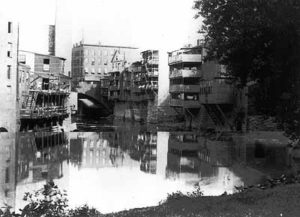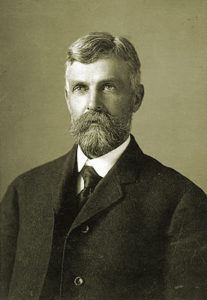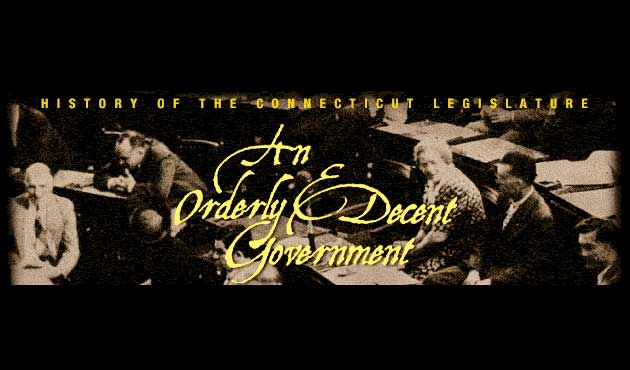New Immigrants
Connecticut’s new immigrants were predominantly from southern and eastern Europe. Yankees saw in the high birth rates, vastly different customs and values, unpredictable loyalties and, above all, the Catholicism of the newcomers a profound threat to their traditional way of life.
“The longer I go on with this work, the more I am impressed with their ignorance and their utter lack of the ideals and principles that so govern our own living.”
– Elizabeth Ayres, Superintendent,
Hartford Union for Home Work, 1912
Rise of the Cities

Immigrant tenements overhanging
Hartford’s Park River,
c. 1900
Stimulated by immigration and industrialization, Connecticut cities expanded rapidly. Bridgeport grew from a population of 30,000 in 1880 to a thriving metropolis of over 100,000 thirty years later. Waterbury shot up from a population of 20,000 to 90,000 in the same period. An expanding middle class of managers and professionals occupied comfortable neighborhoods in Hartford, New Haven, Bridgeport and Waterbury.
Immigrants found urban life less attractive. Packed together in the airless tenements of Hartford, Bridgeport and New Haven, hundreds of immigrants fell victim to smallpox, cholera, typhus, tuberculosis and diphtheria.
A Portrait of the Legislature

Charles E. Lyman, Republican legislato
A representative from Middlefield in 1903, Charles E. Lyman was a typical GOP officeholder of the new century. His family owned 600 acres of land and a factory which made washing machines.
The son of Irish immigrants, Jeremiah Donovan was a grocer and salesman before entering politics. A leading Fairfield County Democrat, he served as a state representative (1903-1904), a state senator (1905-1909), a United States congressman (1913-1914) and the mayor of Norwalk (1917-1921).
By hiring advocates to uphold the railroad’s interests in the General Assembly, Charles Mellon ensured that the “business lobby” would be a dominant force in the turn of the century legislature. J. Henry Roraback, a young lawyer from Litchfield County, received $5,000 a year (equivalent to $75,000 today) from Mellon to lobby for the New Haven Railroad and began a career that would take him to the pinnacle of Connecticut politics.
“This hall is filled with railroad lobbyists, as the Frogs thronged Egypt.”
– P.T. Barnum, two-term representative
from Bridgeport
This article is a panel reproduction from An Orderly and Decent Government, an exhibition on the history of representative government in Connecticut developed by Connecticut Humanities and put on display in the Capitol concourse of the Legislative Office Building, Hartford, Connecticut.
<< Previous – Home – Next >>









